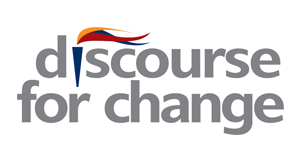Leading change
Discourse for change
Effective change depends on a clear message and a sense of urgency. Moreover it requires engagement and ownership driven by a heartfelt belief and passion to deliver excellently on all aspects of our multi-facetted tasks. The core work of a university is teaching, research and community engagement, each of which is essentially about consultation and communication. At Unisa, communication depends on collaboration which comes from open and frank discussion, consultation and ultimately, agreed-upon strategies.
Listening is key
Effective communication is a critical success factor in any organisational drive to bring about change and ensure a paradigm shift to a desired improved state. More importantly, listening and engaging with critical stakeholders is the bedrock of any successful stakeholder communication, purely because it makes it possible to construct clear messages based on the knowledge and understanding of the issues affecting each of the stakeholders. Unisa already has in place various systems, platforms and fora for engaging with its key stakeholders in open and frank discussions, robust consultation and negotiation with the ultimate goal of agreeing on strategies and plans to make Unisa succeed.
Ensuring that students have a voice
The university’s students are currently able to interface with lecturers, academic support staff and management of the university through face-to-face meetings, e-tutoring facilities, emails, Facebook, Twitter, myUnisa, SRC representation and student assemblies. A new Student Relationship Model (SRM), which is set to be introduced shortly, is geared towards closing some of the communication gaps we have been experiencing in our student communication; thus ensuring a quicker turn-around to resolving student queries and all-round improvement of service delivery to students.
Engagement with other critical stakeholders, including alumni, government, business and other partners, is handled mainly through the Institutional Development and Transformation portfolio and the Office of the Principal and Vice-Chancellor. This is done through alumni chapters, Convocation meetings, partnership agreements and bilateral discussions.
Robust staff engagement
On the shop floor, Unisa has remained consistent with its approach by ensuring an enabling environment for open dialogue and engagement on staffing issues in their various guises. Regular staff and one-on-one meetings with subordinates remain a feature of life at the university, underscored by and measured in terms of the Integrated Performance Management System (IPMS). At a higher level, the Principal and Vice-Chancellor’s staff assemblies across the country are held without fail to enable listening and robust engagement on pertinent staffing issues.
At a collective level, the Unisa Bargaining Forum remains active for bargaining on terms and conditions employment, while a special-purpose vehicle, the Multi-Stakeholder Task Team (MSTT) has been set up to provide technical and advisory advice and support to the Unisa Council in relation to the insourcing of currently-outsourced services.
Reasserting the academic voice in society
There is an expectation for universities to provide thought leadership, conduct research and produce knowledge that will empower humanity to resolve many of the social challenges it currently faces. Reasserting the academic voice in society has thus become mission critical for Unisa, particularly given the expectation of society on the university as the biggest in South Africa, in Africa and in the Southern Hemisphere, and one of the world’s mega-universities.
The ongoing work across the university to achieve the opinion and thought leadership objective, through numerous public lectures, dialogues, debates, seminars, conferences and symposia, round-table discussions and relevant profile events are testimony to Unisa’s commitment to live this motto. However, the myriad of challenges faced by society in the country and the continent require of Unisa to up the ante in its quest to conduct research and produce knowledge that will impact positively on society.
In response to these challenges the ongoing series of Unisa-Sowetan Dialogues aim to contribute to the discourse and begin an informed debate on the meaning and importance of history in shaping South Africa’s present and future, to present history in an interesting way by presenting its relevance to life in contemporary South Africa and to draw people to a further study of history and to encourage them to interrogate the veracity of their strongly held views. The themes of the dialogues present an intersection between milestones in our history of struggle and our present challenges as a nation in the making.
So, too, the Critical Thinking Forum series, hosted in partnership with the Mail & Guardian, is aimed at the critical thinkers, decision makers and influencers in media, government and society at large, and created a platform for critical thinking on matters central to the national discourse.
